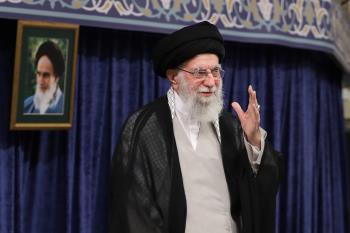Alwaght- One year on since the establishment of ineffective US-led military coalition in Syria, now Iran and its allies, which have never left the Syrians alone, even in the toughest conditions of the crisis, have decided to form a real military coalition to battle the terrorist groups opposing the Syrian government. The first step of the new coalition was Russia's military support for Syrian President Bashar al-Assad’s government to help him obliterate the ISIS and other terrorist groups’ military bases in Syria’s border areas. However, there are some uncertainties about Russia’s real intention behind its air campaign in Syria, as well as about the point view of Iran and the West about Syria's new condition.
In fact, the Russians have a host of military, economic and political interests in Syria, and they consider the country as their last conventional partner and ally in the West Asia’s Arab part. Moscow has also a military base in the Mediterranean coast, in the Syrian soil that’s protection is of high significance for Russia, because it facilitates the presence of its naval fleet in the Mediterranean Sea. Connecting Asia, Europe and Africa, the Mediterranean Sea is of profound strategic importance for Moscow. So, Russia’s military attendance in Syria and preserving President al-Assad’s government is critically significant.
In the meantime, the Russians are observing all the developments in the West Asian region as a theory developed and practiced by the West, 'controlled chaos theory'. Russia believes that the US and West want to create conflict and discordance in the countries seen as Moscow’s allies or those opposing the US interests and objectives in the West Asian region. Indeed, Moscow believes that the West aims to destabilize pro-Russia countries in order to forge pro-Western governments there. According to Moscow, the adoptation of the controlled chaos theory would not be limited to Syria, and should the government of the President al-Assad in Syria fall, the spread of the terrorist groups would have a domino effect, creeping to other countries of the region, specifically those of Central Asia and Caucasus region, that would endanger Russia’s national security after its borders. Therefore, Russia considers Syria as a strategic opportunity, insisting that the current Syrian government must stay in power at any expense.
On the other hand, although Iran and Russia share no common interests in Syria, but they have taken concordant and coordinated stances towards the crisis there. Tehran’s overarching intention of supporting Damascus government is to preserve and strengthen the Resistance Axis in the face of the Israeli regime; however, the case is different with Moscow that considers Syria as a field for running a geopolitical competition as well as a playing card for dealing with the US. So, the Russian interests in Syria are completely inconsistent to those of Iran. But, it is the shared intent of saving the President Bashar al-Assad and the current Syrian government which brings the two countries under one umbrella, pushing them to hold similar stances on Syria. This is what sustained Tehran and Moscow cooperating consistently in the areas of security and intelligence, despite diverse developments during the five years of the Syrian crisis.
In the present circumstances, the intelligence coalition between Russia, Iran, Syria and Iraq is expected to play an influential and decisive role in the future of the developments in Syria. At the same time, it must be considered that if Russia increases its role as an effective player in the Syrian military scene, it could go to the negotiations table with an upper hand and a bargaining chip, possibly making it more inclined to proceed with its policies.
With regard to the Russian direct and announced military action in Syria, in case of holding talks or conferences in the future, Moscow could have a stronger bargaining power to deal with the West. However, this does not mean that Iran would lose place and role in the region. Having in mind that the only purpose of Iran is to save the Syrian government and to repel and destroy the terrorist groups in Syria as well as to restore peace to the crisis-hit country, even if Moscow enjoys the upper hand in any negotiations, the Iranian interests, to a large extent, would be secured at the end.
However, due to the fact that Iran tries to become a major regional and even international political player it would also work independently in the region and will not tie all of its future interests to cooperation with Russia. Being an effective player in Syria as well as in the West Asia, Iran will maintain an active role in order to not to be overshadowed by the other players. This is why the West has frequently admitted that one of the reasons resulting in failure of the Geneva 1 and 2 talks on Syria has been Iran’s absence, a reality that pushed the Americans in the recent months to suggest that they should hold talks with Iran over Syria's crisis.


























